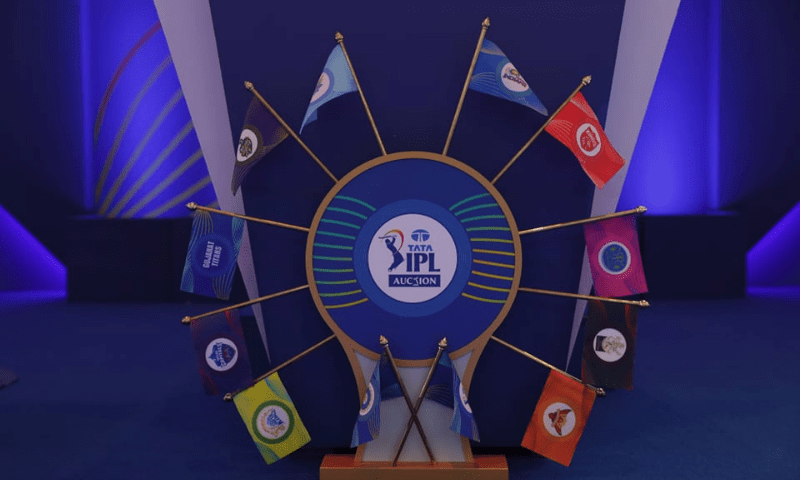Introduction
In the aftermath of Pakistan’s recent T20I series defeat to Australia, former wicketkeeper Rashid Latif has highlighted significant concerns regarding the batting approaches of Pakistan’s top-order duo, Babar Azam and Mohammad Rizwan. Latif draws comparisons between these players and India’s Rohit Sharma, emphasizing the need for adaptation in modern cricket.
The Struggles of Pakistan’s Top-Order
A Tough Series Against Australia
Pakistan’s recent clean sweep defeat in the T20I series against Australia has raised eyebrows and questions about the adaptability of their top-order batsmen. Australia made history by becoming the first team to secure seven consecutive T20I victories over Pakistan, now leading the head-to-head record 14-13.
Babar Azam and Mohammad Rizwan’s Performance
The series exposed significant weaknesses in Pakistan’s batting lineup. Babar Azam, the captain, managed only 47 runs across three T20Is, following a subpar ODI series where he scored just 80 runs. Similarly, Mohammad Rizwan’s impact was limited, scoring only 16 runs in his two appearances before being rested for the final match.
Rohit Sharma’s Adaptive Batting Approach
Success in the 50-Over Format
Latif acknowledged the success of Indian captain Rohit Sharma in adapting his batting approach, particularly in the 50-over format. “Rohit Sharma in one-day cricket was able to adapt very well. He changed the mindset in ODIs and it worked out very well,” Latif remarked in an exclusive interview with Arvind Kalyana Krishnan, as quoted by CricBlog.
Transformation into a Dynamic Player
Rohit’s ability to transform into a more aggressive and dynamic player significantly contributed to India’s journey to the 2023 World Cup final. Latif praised Rohit for this mindset change, noting, “The way he changed everything in the entire Indian team.”
Challenges in Adapting Across Formats
The Test Format Dilemma
Despite his success in ODIs, Rohit’s aggressive style did not translate well into the Test format. Latif pointed out that during India’s recent Test defeat to New Zealand, Rohit’s aggressive approach backfired. He was dismissed attempting a risky cross-shot, underscoring the importance of format-specific strategies.
The Importance of Format-Specific Strategies
“That same style backfired in Tests and it massively flopped,” Latif said. He emphasized the need for players to adapt their style according to the demands of each format, highlighting Rohit’s struggles in Tests as a cautionary tale.
Lessons for Babar Azam and Mohammad Rizwan
The Need for Adaptation
Latif stressed that players like Babar Azam and Mohammad Rizwan can adapt their game to meet the evolving demands of modern T20 cricket. However, they must be careful not to overdo it, which could result in unintended consequences. “They can change their game, but it will affect a lot of things,” he warned.
Balancing Aggression and Stability
Latif’s comments suggest that while adaptation is crucial, it must be balanced with a consideration of each player’s strengths and the specific requirements of each format. The aggressive approach that works in one format may not necessarily yield success in another.
Conclusion
Rashid Latif’s insights provide valuable lessons for Pakistan’s top-order batsmen. As modern cricket continues to evolve, the ability to adapt and balance aggression with stability will be crucial for players like Babar Azam and Mohammad Rizwan. By learning from the successes and failures of players like Rohit Sharma, they can enhance their performance and contribute to the team’s success across all formats.
FAQs
1. What did Rashid Latif say about Rohit Sharma’s batting approach?
Rashid Latif praised Rohit Sharma for successfully adapting his batting approach in ODIs, which helped India reach the 2023 World Cup final. He noted that Rohit’s mindset change made him a more aggressive and dynamic player.
2. Why is adaptation important for Babar Azam and Mohammad Rizwan?
Latif emphasized that adaptation is crucial for modern T20 cricket. He pointed out that while Babar and Rizwan can adapt their game, they must be careful not to overdo it, as it could lead to negative outcomes.
3. How did Rohit Sharma’s aggressive approach fare in Test cricket?
Rohit’s aggressive approach backfired in Test cricket, particularly during India’s defeat to New Zealand. Latif highlighted that despite having a strong defense, Rohit was dismissed while attempting a risky cross-shot, underscoring the importance of format-specific strategies.
4. What were the main concerns for Pakistan during the T20I series against Australia?
The main concerns were the poor form of key players like Babar Azam and Mohammad Rizwan. Babar managed only 47 runs across three T20Is, and Rizwan scored just 16 runs in his two appearances.
5. What lessons can be learned from Rohit Sharma’s experience?
The key lesson is the importance of adapting one’s game to suit different formats. While aggression worked well for Rohit in ODIs, it failed in Tests. Players need to balance their approach based on the format’s specific demands.
SEE ALSO:
https://flarenews.pk/2024/11/21/coas-calls-for-accountability-of-those-making-default-claims/



